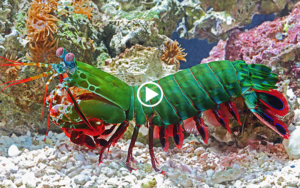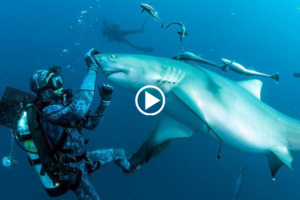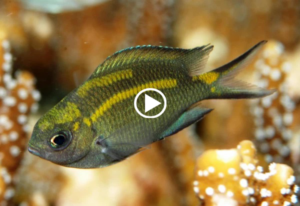Researchers have discovered the first example of an animal domesticating another species, a long-finned thia that recruits small shrimp to care for their algae farm.
So far, scientists have only recorded the domestication behavior of insects in ants. As a result, they rely on the mucus secreted by insects to protect themselves from predators.
However, a similar behavior has never been observed in other vertebrates.
But in the coral reefs of Belize, scientists have found that longfin thia fish also exhibit this behavior.
During an expedition to coral reefs in Belize, a research team from Griffith University and Deakin University discovered the longfin fish that apparently domesticates the mysis shrimp. Thias fish often grow algae for food. It seems they use shrimp manure as a fertilizer to help the algae grow. In return, the mysis shrimp has a haven of peace. Thia will chase away any predators that swim too close.
Scientists confirmed the hypothesis through a series of tests and field experiments. They found that mysis shrimp were drawn to the scent of this fish, although they often actively avoided the scent of predators and were not particularly interested in the seaweed farm. To see if thia was actively protecting the shrimp, the team placed the mysis shrimp in a bag of clean water, then left the bag inside or outside the farm. As a result, outside the farm, other fish try to eat the shrimp, but on the farm, any carnivores that get too close are repelled by the fish.
Finally, experts looked at the benefits that mysis shrimp brings to fish. They found that seaweed quality and fish health improved when mysis shrimp were present, compared to farms without shrimp balls.
“The fieldwork and behavioral experiments we conducted at the Carrie Bow Cay station prove that the relationship between thia and mysis shrimp reflects domestication, in the same way that humans raise farm animals.” said William Feeney, head of the study. “This is the first case of a non-human vertebrate domesticating another species.” The results of the study were published Dec. 7 in the journal Nature Communications.
World’s oldest “grandfather” of whales has died
The owner turns his companion dog into “Lord of the jungle”
Close-up on the rare moment when divers play with the “ocean killer”
Detect the ability to change the sex of juveniles in coral fish







